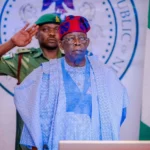READING Chapter 12: Transition to Civil Rule and the June 12 Saga, and the Epilogue: Letter to the Next Generation in General Ibrahim Babangida’s autobiography was nothing short of a disappointment. Instead of offering a compelling and introspective account of his actions as Nigeria’s former military ruler, Babangida presents a narrative riddled with contradictions, half-truths, and a shocking lack of accountability. His attempt to justify the annulment of the June 12, 1993, presidential election exposes either a deep-rooted cowardice or a deliberate distortion of history—or perhaps both. He even said the announcement was initially made without his authority before he later justified the annulment in a nationwide broadcast. How does an Army General, a Commander-in-Chief aof the Armed Forces, justify his fear of being killed by elements within his own government for doing the right thing? How does he rationalize that had he declared the rightful winner, Chief Moshood Kashimawo Abiola, it would have led to Abiola’s assassination and the collapse of the nation? If he were a true patriot, he would have upheld the very legal maxim he quoted on page 288 of his book: Fiat justitia ruat caelum—”Let justice be done, though the heavens fall.” Instead, he chose self-preservation over national integrity, sacrificing Nigeria’s democratic progress in the process.
Babangida’s exit from government was not an act of statesmanship but a face-saving retreat. He fled power like a man who knew the weight of his guilt. It is difficult to reconcile the supposed wisdom he seeks to impart in his letter to the younger generation in the epilogue with the weak justification he provided for his actions in Chapter 12. On page 278, he claims he warned Abiola at a private meeting with his family: “Our lives were in danger of being snuffed out by lurking forces that wished both of us ill.” How does a military strongman, armed with the full force of the state, cower before the internal enemies of the state? Abiola, a civilian, rejected such cowardice. He stood his ground and paid the ultimate price for democracy, along with many other Nigerians who lost their lives in the aftermath of June 12. They are the true heroes of Nigeria’s democracy. Babangida, in contrast, remains a cowardly soldier—one who failed the test of leadership when history demanded courage.If his fear of death was so great, he should have resigned much earlier and spared Nigeria the disaster of his misrule. But no—he stayed on long enough to consolidate power, enrich his cronies, and derail Nigeria’s democratic trajectory before making a convenient exit. And yet, in his epilogue, he had the audacity to advise the younger generation. He even stated on page 308: “We have even had a president who conveniently fits into the youth category.” This is a blatant falsehood. Since 1999, Goodluck Jonathan has been the youngest person to lead Nigeria, assuming office at the age of 53 in 2010. Is 53 the definition of youth? Babangida himself seized power in 1985 at 44—much younger, yet with less education and even less vision for nation-building. His misguided assertion only further exposes the contradictions in his book.
Read Also: VIDEO: Meranda voluntarily resigned as Lagos Speaker, Obasa claims
Nigeria’s greatest tragedy is that it has never been blessed with true and enduring nation-builders. Our independence leaders—Awolowo, Azikiwe, and Bello—failed to work together to establish a lasting foundation for leadership recruitment and to set aside their political bickering in favor of genuine national development. Had they done so, Nigeria would not have been left vulnerable to leaders like Babangida, who, a few days ago, was shamelessly celebrated by his peers—men who, even in retirement, refuse to reflect on the destruction they wrought upon this nation. They gathered in self-congratulation without a moment of remembrance for the lives lost to the June 12 annulment.
The difference between Nigeria and nations like the United States is the presence of true visionaries in their foundational years. America is what it is today because of leaders like George Washington, Thomas Jefferson, Benjamin Franklin, Alexander Hamilton, James Madison, and John Jay,, among others who fought war for independence and laid the groundwork for democracy. Abraham Lincoln, despite fierce opposition, did what was necessary to keep the country united and ended slavery. They were men of courage, conviction, and sacrifice. In contrast, Babangida and his peers represent a generation of Nigerian leaders who prioritized personal survival and selfish interests over national progress. To drive this home, a comparison between Babangida and Late Adekunle Fajuyi starkly highlights the difference between courage and cowardice. Fajuyi, the Military Governor of the Western Region, demonstrated unwavering loyalty and bravery when he stood by visiting Head of State Aguiyi Ironsi against coup plotters, ultimately sacrificing his life to protect his visitor. In contrast, Babangida’s actions during the June 12 election saga were marked by self-preservation and a lack of accountability, as he annulled the election despite Moshood Abiola’s clear victory, winning 19 of 30 states with 8,341,309 votes (58.36%) . If Babangida had protected the wishes of Nigerians, even with his life, he would have been more honorably remembered today. It seems that they consider their participation in the Nigerian civil war, which they actually started by their interference in civil rule in 1966, as a ticket for their ownership of the country. Just look at how stupendously rich are many of the Nigerian retired Generals!!! But the law of nature is setting in for them gradually without any enduring legacy. Nigeria is worst than they met her!!! I had hoped that Chapter 12 and the epilogue of his book would offer some form of redemption—perhaps an intelligent revelation, a hidden truth, or an inspiring lesson that could justify reading the rest of the autobiography. But I found none. He failed to provide any late security report made available to him that made Abiola unfit to be president—because there was none. He failed to present any new justification for the annulment—because there is none. Just a fear for his life!!! Like his colleagues, Babangida remains uninspiring to younger generation like me. He has no legacy of courage, no defining achievement, and no wisdom worth passing down. His book is not a reflection of leadership but a desperate attempt to rewrite history in his favour. However, history will remember him for what he truly was—a ruler who had the power to do the right thing but lacked the courage to follow through.
- Dr Salako, an energy scientist, writes in from the United States.
WATCH TOP VIDEOS FROM NIGERIAN TRIBUNE TV
- Let’s Talk About SELF-AWARENESS
- Is Your Confidence Mistaken for Pride? Let’s talk about it
- Is Etiquette About Perfection…Or Just Not Being Rude?
- Top Psychologist Reveal 3 Signs You’re Struggling With Imposter Syndrome
- Do You Pick Up Work-Related Calls at Midnight or Never? Let’s Talk About Boundaries







